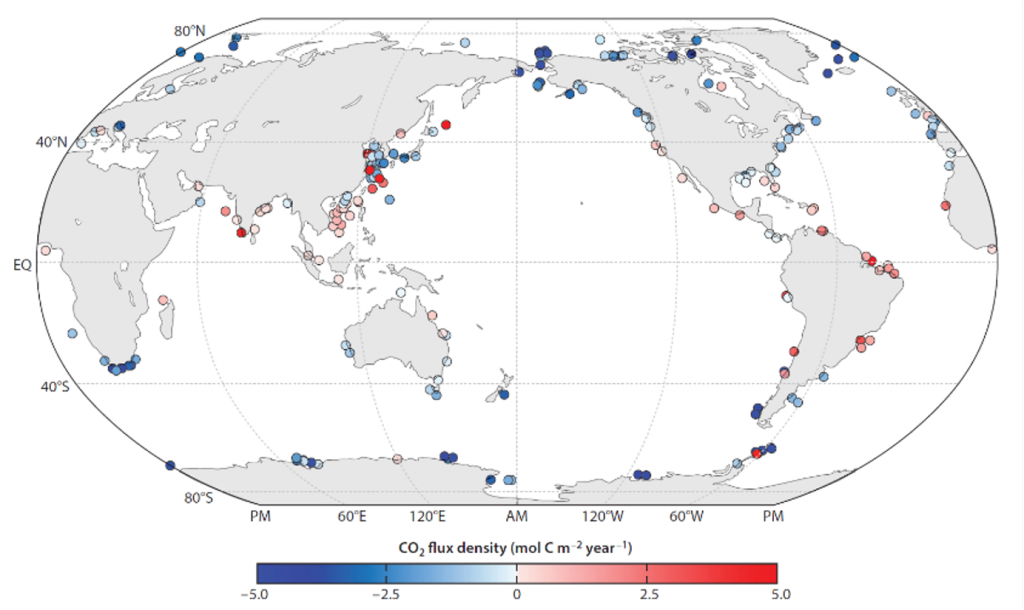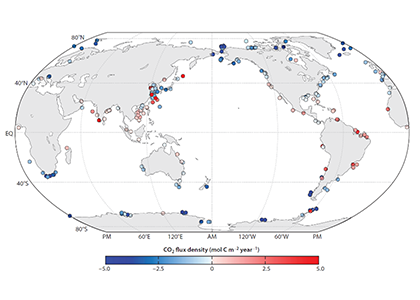A vital part of mitigating climate change is the coastal and open ocean carbon sink, without this, it is not possible to meet the target set by the Paris Agreement. More research is needed to better understand the ocean carbon cycle and its future role in the uptake of anthropogenic carbon. A review provides an analysis of the current qualitative and quantitative understanding of the coastal ocean carbon cycle at regional to global scales, with a focus on the air-sea CO2 exchange. It includes novel findings obtained using the full breadth of methodological approaches, from observation-based studies and advanced statistical methods to conceptual and theoretical frameworks, and numerical modeling.

Figure 1: Updated sea-air CO2 flux density (mol C m−2 year−1) in the global coastal oceans that reveals that the global coastal ocean is an integrated CO2 sink with the strongest CO2 uptake at high latitudes. The challenges associated with identifying current and projected responses of the coastal ocean and it source/sink role in the global carbon budget require observational networks that are coordinated and integrated with modeling programs; development of this capability is a priority for the ocean carbon research and management communities.
Based on a new quantitative synthesis of air-sea CO2 exchange, this study yields an estimate for the globally integrated coastal ocean CO2 flux of −0.25 ± 0.05 Pg C year−1, with polar and subpolar regions accounting for most of the CO2 removal (>90%). A framework that classifies river-dominated ocean margin (RiOMar) and ocean-dominated margin (OceMar) systems is used in to conceptualize coastal carbon cycle processes. Ocean carbon models are reviewed in terms of the ability to simulate key processes and project future changes in different continental shelf regions. Concurrent trends and changes in the land-ocean-atmosphere coupled system introduce large uncertainties into projections of ocean carbon fluxes, in particular into defining the role of the coastal carbon sink and its evolution, both of which are of fundamental importance to climate science and climate policies developed before and after achievement of net-zero CO2 emissions. The major gaps and challenges identified for current coastal ocean carbon research have important implications for climate and sustainability policies. This study is a contribution to the Regional Carbon Cycle Assessment and Processes Phase 2 supported by the Global Carbon Project.
Authors:
M. H. Dai, J. Z. Su, Y. Y. Z., E. E. Hofmann, Z. M. Cao, W.-J. Cai, J. P. Gan, F. Lacroix, G. G. Laruelle, F. F. Meng, J. D. Müller, P. A.G. Regnier, G. Z. Wang, and Z. X. Wang




